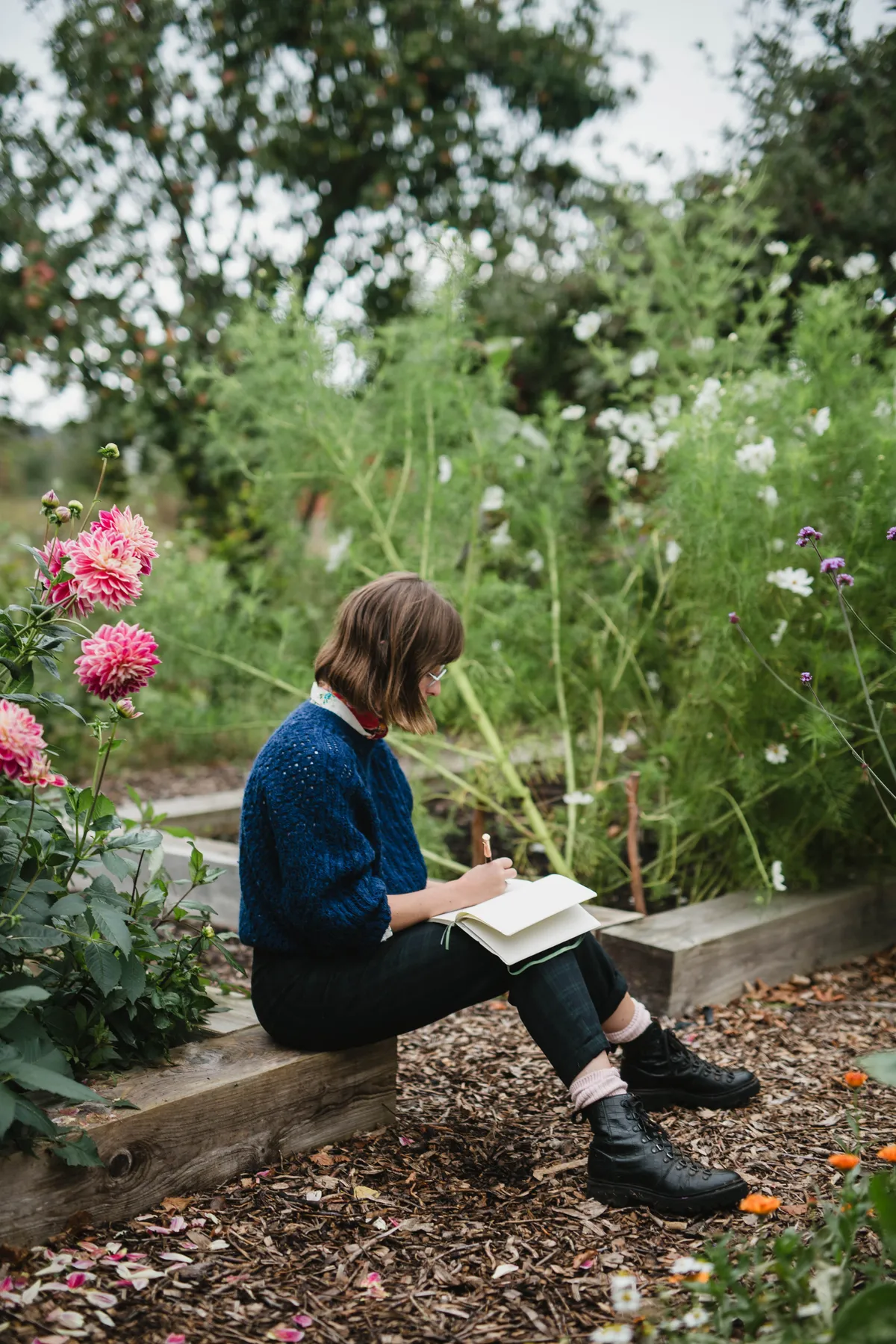Alice Vincent's Why Women Grow is now out. Here we share a piece written by Alice on how she came to write the book.
In 2021, I posted an anonymous survey online and asked women to answer it. At its heart was one question: “What drew you to gardening?”
More than 700 people replied, from all over the world and from their teens to their seventies. Some shared generous, heartfelt stories of loss and recovery, motherhood and retreat, creativity and carving space. Others were succinct, relying on a single word or statement - “Mum”, “Family”, “Being outside” – to capture their affinity with the earth.
I’d pushed this question into the ether because I was asking it of myself. I wanted to know why I grew, and I wanted to know why women grew. Women specifically because I am one, and because I have always felt I’ve inhabited spaces defined by men: cities, newsrooms, the dark caverns of gig venues and, increasingly, horticulture.
In nearly every aspect of a patriarchal society there are statistics to demonstrate the extent to which women - women of colour, trans women and women with disabilities in particular - are marginalised. We earn less, our work is less visible, our voices go unheard more often.
From being a statistic I know that numbers can minimise people even further. Stories, though, are harder to shake. It was these that I wanted to hear and, in the process of writing them into a book manuscript – Why Women Grow – I hope that I have helped to tell.
I’ve spent the past 18 months thinking about, hearing and handling stories from women who garden - some on their own land, some on land they are renting, some on land that is shared among a community
I’ve spent the past 18 months thinking about, hearing and handling stories from women who garden – some on their own land, some on land they are renting, some on land that is shared among a community. It’s been a deeply generous and privileged process.
Among the lessons I’ve learned from it, however, is how easy it is for women’s stories to slip below the ground.
Gardens are places where things get buried. Among the bulbs, roots and rotting matter go seasons and narratives, the unexpected phone call of a Tuesday afternoon that can change a life forever, the celebratory moments and the crushingly heavy ones.
It is difficult, I’ve realised, to garden without putting some of our own lives into the earth. We use these spaces to take our grief and our joy for a breather. Often, this happens alone and therefore invisibly: another aspect of a woman’s thought, effort and creativity that appears like magic, erasing the graft beneath.
In researching and writing Why Women Grow I came to understand that I had overlooked the work my mother and grandmother did in the gardens I grew up in
In researching and writing Why Women Grow I came to understand that I had overlooked the work my mother and grandmother did in the gardens I grew up in. I started to tend to my own garden, and realised how easily the work I did there could go unacknowledged.
Seasons are inherently ephemeral - nothing we make outside will last forever. But for it to go without recognition is to silence what we have done, to let that knowledge and creativity disappear. Once it’s gone, the girls and women of the future can’t see themselves in the gardens we have created. How are we to leave something for them to follow and build on, if they never knew they were meant to be there?
And so I urge you to tell your stories, those forged in the garden or otherwise. Be proud of the plants you have chosen, the cuttings you have shared, the trees you have planted. See the beauty you have made as a mark of your creativity and cleverness, as something you have ushered up from the earth.
Acknowledge the space you're growing in – whether in a community garden or a window box or something bigger - has taken in your brain, alongside everything else you have been expected to deal with. See where your story lies alongside the dirt beneath your fingernails and tell it.
Because women are the silent caretakers of the earth – we always have been – and our care, our thought and our time is too precious to not be shared.

Alice Vincent is a writer and gardener. She is the author of Rootbound, Rewilding a Life (Canongate, £9.99). Why Women Grow is now out.
